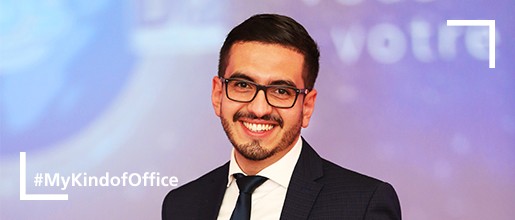World Diabetes Day was first created in 1991 by the International Diabetes Federation and the World Health Organization, in response to growing concerns about the escalating health threat posed by diabetes. It was only in 2006 that the United Nations officially recognised the day, turning November 14 into a designated day for diabetes advocacy and reflection each year. We spoke to Leif Fenger Jensen, Managing Director of the World Diabetes Foundation and a former employee at Novo Nordisk, about World Diabetes Day and why the role played by the World Diabetes Foundation is crucial.
World Diabetes Day offers an annual reminder that there are global, regional and civil society organisations all working to combat the disease. It is an opportunity to share information about prevention and self-care, to advocate for more resources and attention. You could list many reasons behind the importance of World Diabetes Day, but I think that above all, it is an opportunity to remind the millions of people living with diabetes that they are not alone.
World Diabetes Day focuses both on the threat posed by diabetes, and by the patients, families and societies touched by the disease. Novo Nordisk employees often tell us that World Diabetes Day reminds them of the importance of their work and of the people whose lives depend on the company’s products – so, I think that what it mainly does is offer a moment for reflection on the purpose behind their work.
Diabetes is one of the greatest public health emergencies of the 21st century, and it is hitting developing countries the hardest. Nearly 80% of people with diabetes now live in low- and middle-income countries, where financial and human resources are often scarce. Yet when the World Diabetes Foundation was founded, diabetes and other noncommunicable diseases (NCDs) were often neglected by development agencies and governments alike.
In the early 2000s, challenged on how to ensure access to insulin and diabetes care in the world’s poorest countries, Novo Nordisk decided to take an important step towards a better future for patients living with diabetes. Novo Nordisk defined a long-term strategy, which included the establishment of the World Diabetes Foundation and a differential pricing policy for the world’s least developed countries. Many initiatives have followed since.
In recent years, we have seen a growing recognition that preventing and controlling diabetes and other NCDs is a prerequisite for sustainable development. As a funder, catalyst and technical partner, the World Diabetes Foundation is helping to meet the growing demand for solutions to the diabetes crisis in developing countries.
Scaling up successful approaches is an increasing focus for us. For example, we’re currently working with the Novo Nordisk Foundation (NNF) to scale up our current partnerships in Tanzania. The NNF grant is part of WDF’s strategy to increase support for national programmes to address diabetes and other NCDs in countries where we have had partnerships for several years, and where a strong collaboration with the government and leading national stakeholders is in place.
The growing recognition of the threat that diabetes poses to individuals and societies is encouraging. But we need to see improvement on more fronts – governments, civil society and other non-state actors need to be proactive if they are to deliver on global commitments to reduce premature mortality from NCDs.
Over the past 17 years, we have seen the size, ambition and impact of our projects grow. In addition, our long-term funding mechanism and partner network mean that WDF is well-positioned to help countries achieve global targets such as the UN Sustainable Development Goals. The role of the World Diabetes Foundation as a demand-driven funder, catalyst and technical partner for sustainable development is more relevant than ever – and we look forward to lending our support to this critical task.
Find out more about the work of the World Diabetes Foundation here.


